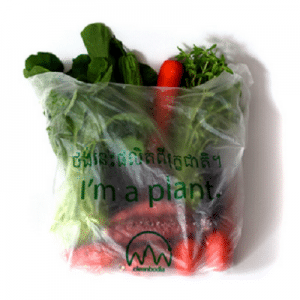
Agriculture
January 11, 2024
Cleanbodia Bio Bags
Read SolutionImplemented by
Cleanbodia
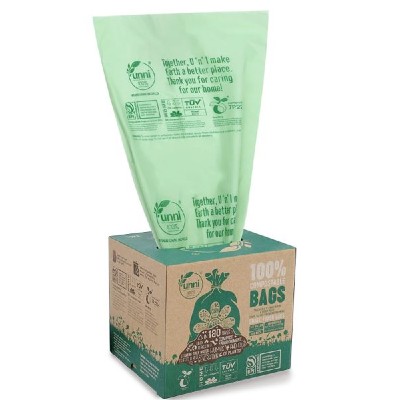
Updated on January 15, 2024
·Created on August 17, 2020
The UNNI Compostable Trash Bags are 100% biodegradable trash bags used for kitchen trash bins, food waste collection, or other organic waste collection.
UNNI Compostable Trash Bags are 100% biodegradable trash bags made from plant starches that do not contain polyethylene. The product is certified by the Biodegradable Products Institute (BPI), meaning that it can be disposed of in commercial compost sites. The manufacturer has developed various sizes for this product, which are available in the market.
Target SDGs
SDG 6: Clean Water and Sanitation
Market Suggested Retail Price
$11.95
Target Users (Target Impact Group)
Household, Community, Small and Medium-sized Enterprises, Public Sector Agencies, NGOs
Distributors / Implementing Organizations
The product is distributed by a number of online marketplaces including Amazon and eBay.
Competitive Landscape
Direct competitors include Cleanbodia Bio Bags.
Regions
Worldwide
Manufacturing/Building Method
UNNI manages its own manufacturing and distribution channels. The organization produces 12,000 kg of the product per year. Interview with Representative in 2020
Intellectural Property Type
Trademark
User Provision Model
Users can directly obtain the product from UNNI's website. Wholesalers can also organize procurement through the manufacturer's website. The product is also available from online marketplaces including Amazon and eBay.
Distributions to Date Status
UNNI distributed 5,000 kg of the product in 2019. Interview with Representative in 2020
User operation
User-operated
Consumables
1 bag per use
Power supply type
No power required
Design Specifications
The biodegradable bags are made from corn and plant starch and contain no polyethylene. The bags are available in eight sizes. Sample sizes outlined below:
When disposed of in a compost environment, the starch-based bag degrades naturally in approximately 180 days leaving only water, humus and carbon dioxide.
Technical Support
Not applicable
Replacement Components
Not applicable
Lifecycle
It is recommended that the bag is used after the time of purchase, and within 9 months after opening the package. When disposed of in a compost environment, the starch-based bags are estimated to degrade in 180 days.
Manufacturer Specified Performance Parameters
Designer specified performance targets include: durable, non-toxic, easy to use, and environmentally-friendly.
Vetted Performance Status
For BPI certification, this product was subjected to the following tests:
Safety
Users must consider the following advice to ensure the safe and appropriate use of the product:
Complementary Technical Systems
None
Academic Research and References
None
Compliance with regulations
The product received the following certifications applicable for their respective jurisdictions:
Evaluation methods
The product is evaluated for biodegradability, disintegration, and compost quality by third-parties.
Other Information
The certifications can be found in here

Agriculture
January 11, 2024
Implemented by
Cleanbodia
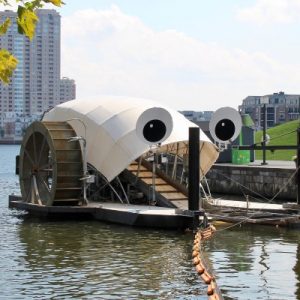
Agriculture
January 15, 2024
Implemented by
Clearwater Mills

Agriculture
August 20, 2024
Implemented by
Purdue University
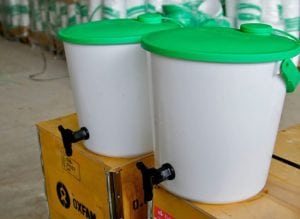
Agriculture
January 10, 2024
Implemented by
Oxfam
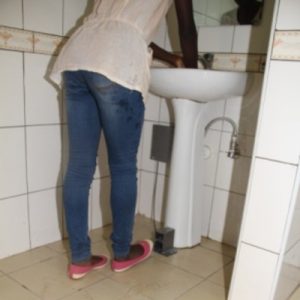
Agriculture
January 9, 2024
Implemented by
PedalTap
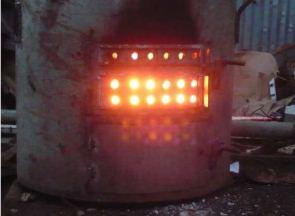
Agriculture
January 10, 2024
Implemented by
Technology for Tomorrow (T4T) Africa
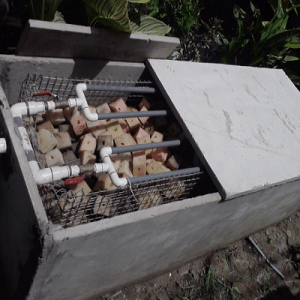
Agriculture
August 15, 2024
Implemented by
Biological Filters and Composters Ltd (Biofilcom)

Agriculture
December 27, 2023
Implemented by
iDE
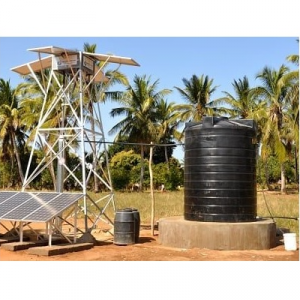
Agriculture
December 27, 2023
Implemented by
Pumpmakers
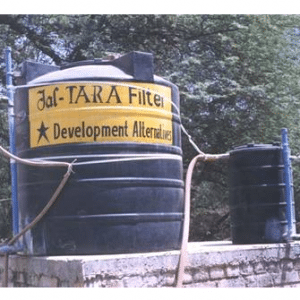
Agriculture
January 11, 2024
Implemented by
TARA
Have thoughts on how we can improve?
Give Us Feedback